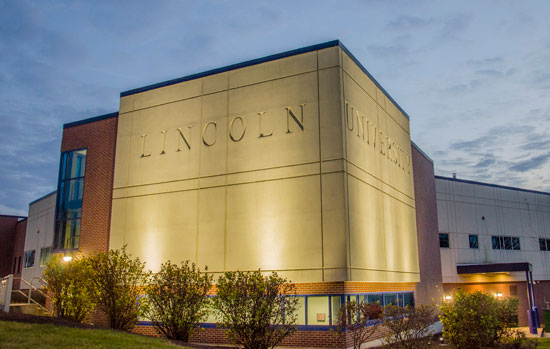- Posted in All University
- Category: AlumniCampus News
LINCOLN UNIVERSITY, Pa. – Lincoln University is a valuable economic engine, generating substantial economic returns to the community, according to a new independent study.
Among the key findings, the study found that Lincoln University generates $115 million in total economic impact for the local and regional economies, including direct spending by the University on faculty, employees, academic programs and operations, based on 2014 data.
“I view this report as news we internally at the University already knew—that Lincoln is a valuable partner in our local community; but now, armed with this data, I plan to take this to local and regional government officials, business leaders and community partners to discuss ways that we can make a greater impact over the coming months and years,” said Brenda A. Allen, who became the president of Lincoln University on July 1.

The study — HBCUs Make America Strong: The Positive Economic Impact of Historically Black Colleges and Universities — said that every dollar spent by Lincoln and its students produces positive economic benefits, generating $1.64 in initial and subsequent spending for its local and regional economies.
The job creation numbers cited in the report show why the University is an economic driver in Southern Chester County: of the 956 jobs the University generates total, 408 are on campus while 548 are off-campus. This means that for each job created on campus, another 1.3 public- and private-sector jobs are created off campus because of University-related spending.
“The drive and passion of our faculty, staff, and students doesn’t cease at our campus gates,” Allen said. “Our work creates ripple effects that spread into the communities around us, but this report gives us conclusive evidence that we can now use to help create even more jobs.”
The study also showed the success the University has had in enhancing the economic prosperity of its graduates. Of the 439 graduates in 2014, they can expect total earnings of $1.2 billion over their lifetimes, which is 47 percent more than they could expect to earn without college credentials. That’s an additional $857,000 in income on an individual basis for each graduate who works full time over the course of his or her working life.
The landmark study was commissioned by the United Negro College Fund with research by the University of Georgia’s Selig Center for Economic Growth. The report was based on the country’s 101 accredited HBCUs and shows that the economic benefits of HBCUs extend beyond the students they educate.
View Lincoln’s report or more information about the broader HBCU study.